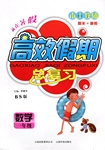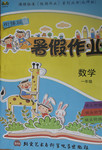题目内容
He _______ the enemy and was raised to the rank of general as a reward.
A. won B. hit C. struck D. defeated
D

 本土教辅赢在暑假高效假期总复习云南科技出版社系列答案
本土教辅赢在暑假高效假期总复习云南科技出版社系列答案 暑假作业北京艺术与科学电子出版社系列答案
暑假作业北京艺术与科学电子出版社系列答案 第三学期赢在暑假系列答案
第三学期赢在暑假系列答案Books are not Nadia Konyk's thing. Her mother brings them home from the library, but Nadia rarely shows interest. Instead, like so many other teenagers, Nadia, 15, is addicted to the Internet. She regularly spends at least six hours a day in front of the computer, spending most of her time reading and commenting on stories written by other users. Her mother, Deborah Konyk, would prefer that Nadia read books for a change.
As teenagers' scores on reading tests have declined, some argue that the hours spent surfing the Internet are the enemy of reading—destroying a precious common culture that exists only through the reading of books. Critics have warned that electronic media would destroy reading.
Others say the Internet has created a new kind of reading. The Web inspires a teenager like Nadia, who might otherwise spend most of her leisure time watching television, to read and write. What is different now, some literacy experts say, is that spending time on the Web engages viewers with text.
Web supporters believe that strong readers on the Web may eventually surpass those who rely on books. Reading five Web sites, experts say, can be more enriching than reading one book. "It takes a long time to read a 400-page book," said Spiro. "In a tenth of the time," he said, the Internet allows a reader to "cover a lot more of the topic from different points of view."
Some literacy experts say that reading itself should be redefined. Interpreting videos or pictures, they say, may be as important a skill as analyzing a novel or a poem. "Kids are using sound and images so they have a world of ideas to put together," said Donna Alvermann, a professor of literacy education at the University of Georgia. "Books aren't out of the picture, but they're only one way of experiencing information in the world today."
Next year, the Organization for Economic Cooperation and Development, which gives reading, math and science tests to 15-year-old students in more than 50 countries, will add an electronic reading component(软件). The United States says it will not participate because an additional test would overburden schools.
【小题1】Why are books not the thing of Nadia Konyk?
A.She does reading  mainly through electronic media. mainly through electronic media. |
| B.Her mother doesn’t provide her with enough books. |
| C.She has become addicted to playing games on the web. |
D.Like many youngsters, she has lost interest in reading. reading. |
| A.Exactly forty-two hours | B.Usually fifty hours  | C.More than forty hours | D.At most thirty-six hours |
| A.To search for information on the web engages viewers without text. |
B.To explain videos is a technique more importa nt than analyzing a novel. nt than analyzing a novel. |
| C.Children using sound and images may lose their interest in movies. |
| D.People reading well online may surpass those who rely on books. |
| A.the teachers and students considered it useless |
| B.such a test would give schools more extra work |
| C.they thought reading was the only way to get information |
| D.none of them showed interest in such an additional test |